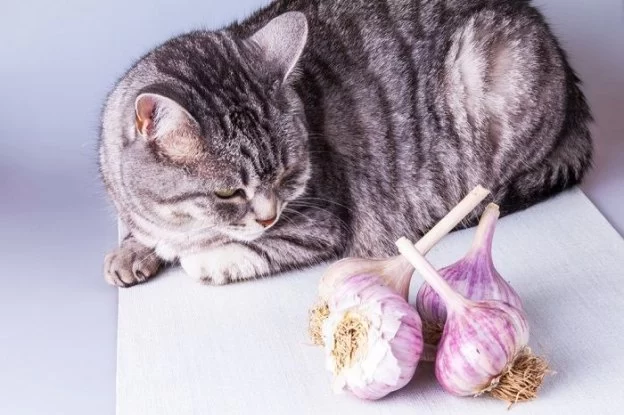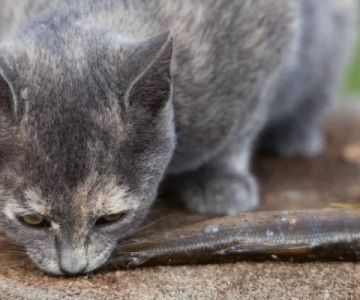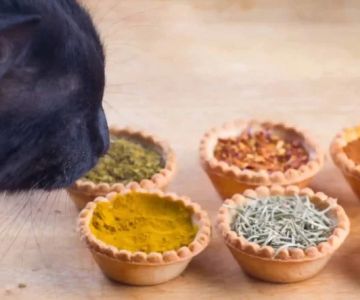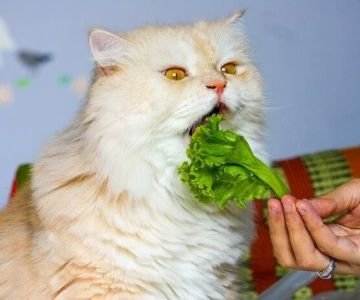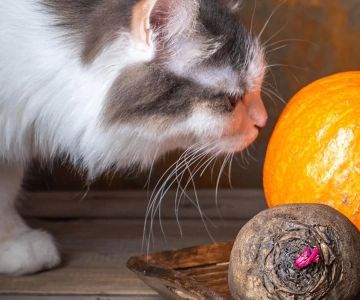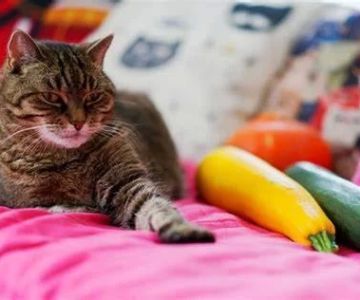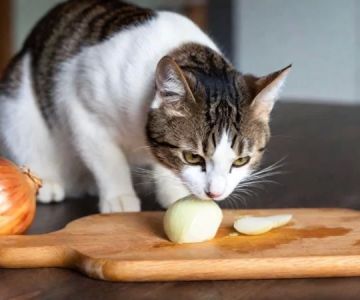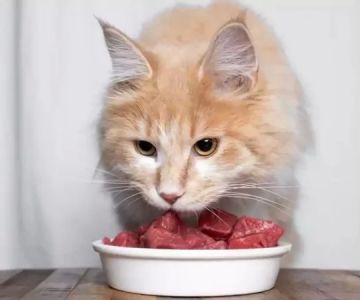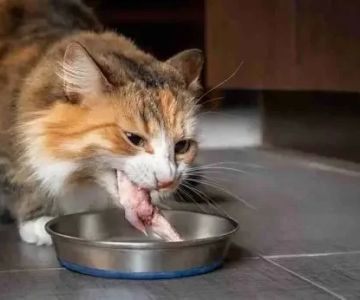- 1 - #understanding-hummus-and-its-ingredients - Understanding Hummus and Its Ingredients
- 2 - #can-cats-eat-hummus-with-garlic - Can Cats Eat Hummus with Garlic?
- 3 - #why-garlic-is-dangerous-for-cats - Why Garlic Is Dangerous for Cats
- 4 - #symptoms-of-garlic-poisoning-in-cats - Symptoms of Garlic Poisoning in Cats
- 5 - #safe-alternatives-to-hummus-for-cats - Safe Alternatives to Hummus for Cats
- 6 - #when-to-seek-veterinary-help - When to Seek Veterinary Help and How Hidden Brook Veterinary Can Help
1. Understanding Hummus and Its Ingredients
Hummus is a delicious and nutritious dip made primarily from chickpeas, tahini (sesame paste), olive oil, lemon juice, and seasonings such as salt and garlic. It’s a staple in Mediterranean cuisine, beloved for its creamy texture and rich flavor. But while it’s a healthy choice for humans, that doesn’t necessarily make it safe for pets—especially cats.
Before asking “can cats eat hummus with garlic”, it’s important to understand that cats have different digestive systems and dietary needs from humans. Their bodies are not designed to process certain plant-based ingredients, and some can even be toxic. While small amounts of plain chickpeas might not cause harm, the seasonings and additives in hummus—especially garlic—can be dangerous.
2. Can Cats Eat Hummus with Garlic?
The short answer is no, cats should never eat hummus that contains garlic. Garlic, even in small amounts, is toxic to cats and can cause serious health issues. Many store-bought or homemade hummus recipes include garlic for flavor, but for felines, this ingredient poses a significant risk. Cats’ bodies cannot metabolize the sulfur compounds found in garlic, which can damage their red blood cells and lead to anemia.
Even if the hummus only contains a trace amount of garlic, it’s still unsafe. Some pet owners assume that a “lick or two” won’t hurt, but garlic toxicity in cats can occur with as little as 0.5 grams per kilogram of body weight. That means even a small taste could lead to illness.
Plain Hummus Without Garlic
What about plain hummus without garlic? Technically, small amounts of unsalted, unseasoned hummus might not be toxic, but it’s still not recommended. Chickpeas and tahini are hard for cats to digest and can cause stomach upset, bloating, or diarrhea. Cats are obligate carnivores, meaning their bodies thrive on protein from animal sources, not plant-based foods like chickpeas.
3. Why Garlic Is Dangerous for Cats
Garlic belongs to the Allium family, which also includes onions, leeks, and chives—all of which are highly toxic to cats. When a cat ingests garlic, it causes oxidative damage to their red blood cells. This can result in a condition known as hemolytic anemia, where the blood cells break down faster than the body can replace them.
How Garlic Affects a Cat’s Body
Once ingested, the compounds in garlic—particularly thiosulfates—interfere with oxygen transport in the bloodstream. This can lead to weakness, fatigue, and pale gums. In more severe cases, cats may require hospitalization to recover. Because cats’ metabolism is slower and more sensitive than that of humans, even trace exposure can be dangerous over time.
Garlic Powder and Processed Foods
It’s worth noting that garlic powder, which is often found in flavored hummus and snack foods, is even more concentrated and toxic than raw garlic. Processed foods such as garlic hummus, dips, or spreads should never be shared with cats under any circumstances.
4. Symptoms of Garlic Poisoning in Cats
If your cat has eaten hummus containing garlic—no matter how little—it’s important to watch for symptoms of toxicity. These symptoms might take several hours or even a couple of days to appear, which can make early detection tricky.
Common Signs Include:
• Lethargy and weakness
• Pale or yellow gums
• Vomiting or diarrhea
• Rapid breathing or increased heart rate
• Loss of appetite
• Dark-colored urine
• Collapse in severe cases
If you notice any of these signs, contact your veterinarian immediately. Garlic poisoning can escalate quickly and requires prompt medical treatment.
5. Safe Alternatives to Hummus for Cats
While hummus might be off-limits, there are plenty of safe and healthy snacks you can offer your feline friend. The goal is to keep treats simple and species-appropriate.
Cat-Safe Treat Options
• Cooked, unseasoned chicken or turkey
• A small amount of plain tuna or salmon
• Freeze-dried meat treats specifically made for cats
• Catnip or cat grass for enrichment
Homemade Cat Snacks
If you enjoy cooking, you can make simple cat treats using canned tuna, egg, and oat flour. These homemade options are not only safe but can also strengthen the bond between you and your pet. Always avoid adding salt, onion, or garlic powder to any cat recipe.
6. When to Seek Veterinary Help and How Hidden Brook Veterinary Can Help
If you suspect your cat has eaten hummus with garlic, don’t wait for symptoms to appear—contact your vet right away. Early intervention can prevent serious complications. Your vet may perform blood tests to check for anemia or toxicity and provide treatments such as IV fluids or medication to support recovery.
At Hidden Brook Veterinary, we understand how easy it is for curious cats to sneak a bite of something they shouldn’t. Our team provides compassionate, professional care and can guide you on safe dietary choices for your feline companion. Whether it’s advice on nutrition, toxicity prevention, or emergency care, we’re here to help ensure your cat lives a healthy, happy life.
So the next time you’re enjoying a bowl of hummus, remember—keep it for yourself and serve your cat a treat that’s safe and nourishing for them.

